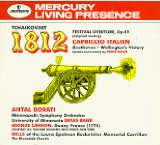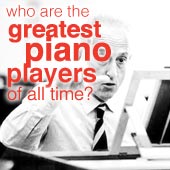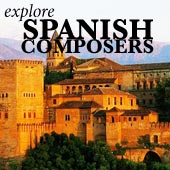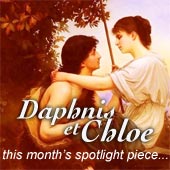Tchaikovsky's 1812 Overture
Triumphant Festival Music
The Tchaikovsky 1812 Overture is an explosively grand music celebration of Russia. It's by far Tchaikovsky's most well-known piece, and features triumphant church bells and dramatic live cannon-fire.
It was one of the first pieces of Tchaikovsky's music I ever heard, and sparked an obsession with the maestro's colorful music.
History of the piece
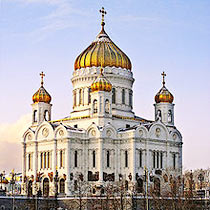
The Tchaikovsky 1812 Overture started life in 1880.
There were lots of important events impending in Russia at the time, including the Moscow Arts and Industry Exhibition and the completion of a church built to mark Russia's defeat of Napoleon in 1812.
Tchaikovsky's friend the musician Nicolai Rubinstein thought it would be a good idea for the composer to write a special festival piece for all these events. Good idea!
Tchaikovsky finished the piece quickly, but didn't like it at all. He thought of it as an empty and noisy piece (probably because of the cannons...), without anything of artistic value inside.
The Tchaikovsky 1812 overture was premiered in 1882 at the Moscow Exhibition. But the performance didn't have the cannons, since the Tsar had been freshly assassinated and people weren't feeling that festive.
In fact, Tchaikovsky never actually heard the piece the way it was written! What a shame. But ever since its premiere it's been ridiculously popular, and is well-known all over the world.
Click to listen to and explore Tchaikovsky's 4th Symphony, another genre-buster
Nowadays in the USA the piece is used to celebrate the 4th of July. As such the original inspiration for the piece has been slightly confused by some people. Here's my explanation...
Triumphant Music
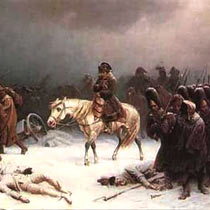
The Tchaikovsky 1812 overture actually tells a true story using music.
The historical event the piece describes is Emperor Napoleon Bonaparte's disaster-filled invasion of Russia in the winter of 1812.
The French Emperor's army seemed pretty much near invincible at the time, since they'd invaded and conquered most of the other countries in Europe.
So Napoleon thought he'd add to his collection of countries and invade Russia.
But he didn't take into account how huge and cold Russia was, and his army ended up being wasted away as they marched for months trying to keep up with the Russians.
The piece starts in a sombre mood, evoking the praying of Russians all over the country after the announcement that Napoleon's army was on its way...
We hear the evil French army approaching, with their national anthem (La Marseillaise) in the distance...
...who soon engage in ferocious battles. Their anthem grows louder and stronger. As the patriotic Russians start to band together to protect their Motherland, we hear beautiful Russian music...
The French anthem and the Russian folk music play over the top of one another, depicting the huge battle near Moscow.
Just as the French are winning and the Russians losing all hope, we here the dramatic sound of church bells, of divine intervention - God is saving Russia!
He brings about a destructively cold winter which drives the French army away. You can even hear the icy winds whirling in the strings.
The Russians capture their cannons and celebrate, with the anthem God Save the Tsar:
Interestingly, neither the national anthems in the Tchaikovsky 1812 Overture were actually used at the time of the French invasion. It doesn't look like the composer did his homework!
It's actually quite rare to see a performance with real live cannons, since it's obviously fairly dangerous. So what usually happens is that the orchestra just uses a big bass drum and whack it hard enough that it sounds almost like a cannon.
The Russian national Anthem that Tchaikovsky used was called "God Save The Czar" - but in the 1960s the Communists in Russia replaced it with their own melody...
However, there are some recordings which use real cannons (as I talk about below). You can recreate a live performance pretty well by combining one of these recordings with a good home audio system.
Recordings of the Tchaikovksy 1812 Overture
Obviously I'm going to recommend a recording which is as faithful to the composer's vision as possible.
Conductor Antal Dorati's performance with the Minneapolis Symphony Orchestra is just that. Along with authentic Russian church bells, this recording also uses actual French cannons from the Napoleonic era.
The tempo is slightly slow, but the music is still blazingly gallant. And those cannons - wow! It's available on Mercury Records...
You might also want to have a look at Tchaikovsky's Romeo and Juliet overture, or his explosive violin concerto.
If you like my site, please click "Like"... thanks!
